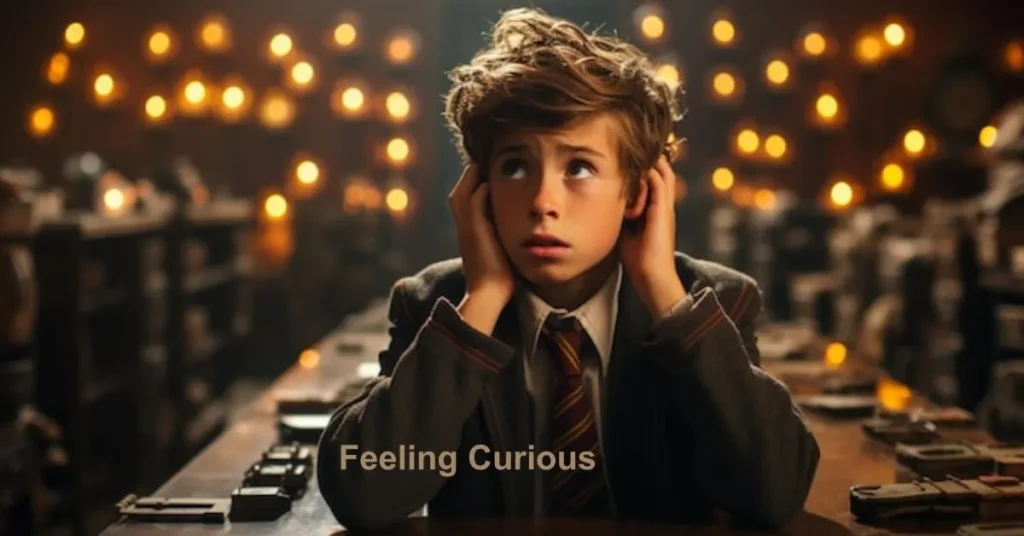Curiosity, often described as the thirst for knowledge or the desire to explore the unknown, is a fundamental aspect of the human experience. It’s what propels us to ask questions, seek answers, and delve deeper into the mysteries of the world around us. From the time we are born, curiosity serves as a guiding force, driving our exploration and learning. In this article, we’ll explore the nature of curiosity, its profound impact on various aspects of life, and how we can harness its power for personal and societal growth.
The Nature of Curiosity
Curiosity is ingrained in human nature, manifesting itself from infancy through adulthood. Babies reach out to touch objects, toddlers incessantly ask “why,” and adults pursue new experiences and knowledge. It’s a trait that knows no bounds, transcending age, gender, and culture. At its core, curiosity is a catalyst for growth, pushing us to venture beyond our comfort zones and expand our horizons.
Curiosity and Learning
One of the most significant roles of curiosity is its contribution to learning. When we’re curious about a topic, we’re more motivated to seek out information, engage in exploration, and actively participate in the learning process. Studies have shown that curious individuals not only retain information better but also demonstrate higher levels of creativity and critical thinking skills.
Curiosity and Creativity
Curiosity and creativity are intertwined, each fueling the other in a continuous cycle of inspiration and innovation. When we approach problems with a curious mindset, we’re more likely to explore unconventional solutions and think outside the box. From artistic endeavors to scientific breakthroughs, curiosity serves as the driving force behind some of humanity’s greatest achievements.
Curiosity and Problem Solving
Curiosity is essential for effective problem-solving, as it encourages us to ask questions, challenge assumptions, and seek alternative perspectives. By approaching challenges with a curious mindset, we’re better equipped to identify root causes, brainstorm solutions, and adapt to changing circumstances. In essence, curiosity is the cornerstone of resilience and adaptability.
Curiosity and Personal Growth
Embracing curiosity is key to personal growth and development. When we maintain a curious attitude towards life, we’re more open to new experiences, perspectives, and opportunities for self-discovery. Curiosity encourages us to step outside our comfort zones, confront our fears, and embrace the unknown, leading to profound personal transformation.
Curiosity in Relationships
Curiosity plays a crucial role in fostering meaningful connections with others. By expressing genuine interest in someone’s thoughts, feelings, and experiences, we demonstrate empathy and compassion. Curiosity encourages active listening, mutual understanding, and the cultivation of deep, authentic relationships built on trust and respect.
Cultivating Curiosity
While curiosity is innate, it can also be cultivated and nurtured over time. By embracing a growth mindset, challenging our assumptions, and seeking out new experiences, we can expand our curiosity and tap into its full potential. Additionally, practicing mindfulness and staying present can help us overcome distractions and cultivate a deeper sense of curiosity in our daily lives.
Curiosity in the Digital Age
In today’s digital age, technology has both facilitated and hindered curiosity. While the internet provides instant access to a wealth of information, it also presents a multitude of distractions that can detract from our ability to focus and explore deeply. Finding a balance between digital consumption and mindful exploration is essential for preserving and nurturing curiosity in the digital age.
The Dark Side of Curiosity
While curiosity is generally regarded as a positive trait, it can also have negative consequences if left unchecked. Excessive curiosity can lead to impulsivity, risk-taking behavior, and even harm if not tempered with caution and discernment. Learning to manage our curiosity responsibly is essential for maintaining a healthy balance between exploration and self-preservation.
Famous Curious Minds
Throughout history, countless individuals have been celebrated for their insatiable curiosity and thirst for knowledge. From Leonardo da Vinci to Marie Curie, these curious minds have shaped the course of human history through their relentless pursuit of discovery and innovation.
Curiosity Across Cultures
Curiosity manifests differently across cultures, influenced by social norms, values, and beliefs. While some cultures may encourage questioning and exploration, others may prioritize conformity and tradition. Understanding and respecting cultural differences in curiosity can foster greater empathy and cross-cultural understanding.
Teaching Curiosity
Nurturing curiosity in future generations is essential for fostering lifelong learning and innovation. Educators play a crucial role in cultivating curiosity by creating stimulating learning environments, encouraging inquiry-based learning, and fostering a culture of curiosity in the classroom.
Curiosity and Well-being
Research has shown that curiosity is closely linked to overall well-being and life satisfaction. Curious individuals tend to experience lower levels of stress, anxiety, and depression, and report higher levels of happiness and fulfillment. By embracing curiosity as a way of life, we can enhance our mental and emotional well-being.
Conclusion
In conclusion, curiosity is a powerful force that drives exploration, learning, and growth. By embracing curiosity in our lives, we can unlock new possibilities, expand our horizons, and cultivate deeper connections with the world around us. So, the next time you feel curious, don’t hesitate to follow your instincts and explore the unknown—it may just lead you to new and exciting discoveries.
FAQs
- Is curiosity a learned behavior or innate trait?
- While curiosity is innate to some extent, it can also be cultivated and nurtured through life experiences and learning.
- How can I cultivate curiosity in my daily life?
- You can cultivate curiosity by staying open-minded, asking questions, seeking out new experiences, and embracing a growth mindset.
- What are the benefits of curiosity for personal development?
- Curiosity has been linked to enhanced learning, creativity, problem-solving abilities, and overall well-being.
- Are there any downsides to being too curious?
- Excessive curiosity can sometimes lead to impulsivity, risk-taking behavior, and distraction if not managed responsibly.
- How can educators encourage curiosity in students?
- Educators can foster curiosity by creating engaging learning environments, encouraging inquiry-based learning, and providing opportunities for exploration and discovery.







